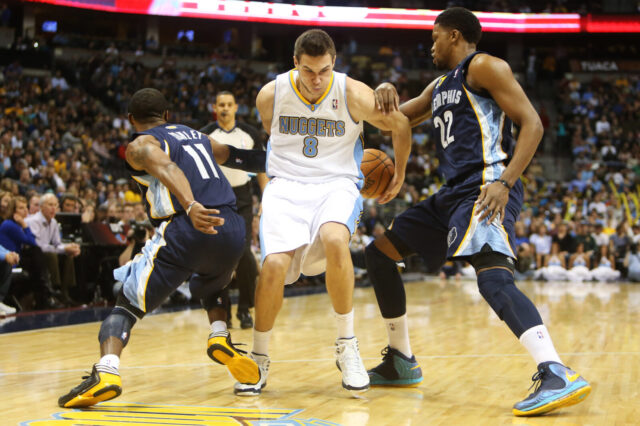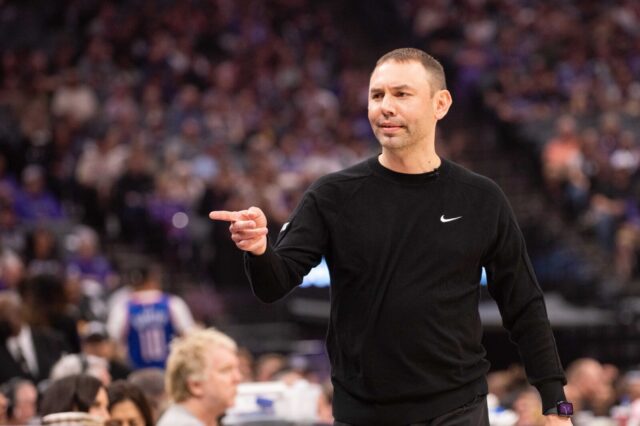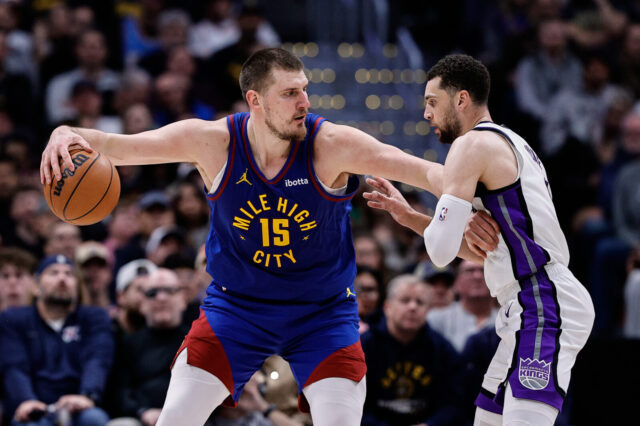Once in a while, I absolutely hate sports. I suppose most great relationships are love/hate, and to be fair, my sports-loathing is a rarity. But I've been struck this past few weeks by the beginning of the NFL season, and the dominance of football topics totally unrelated to the actual play of games. There's no need to re-run the entire list of players who have found themselves afoul of Roger Goodell's arbitrary kangaroo court, but the larger population seem astounded by teams dog-and-pony shows, which are filled with excuses and loopholes all to keep a player in the fold. Possibly most painful is a seemingly direct corollary: The tie between a player's ability to contribute to wins and the insane degree to which a team might go to sweep any misdeeds under the rug.
To my point: Would the Baltimore Ravens third-string nose tackle get a two-game handslap after dragging his unconscious fiancée out of an elevator, no matter what had been seen or unseen? Would a Minnesota Vikings special teamer be welcomed back into the fold after a game or two for hitting his child so hard with a stick that he drew blood? Of course not. And even though both of those lenient punishments were eventually reversed by the whirlwind of evidence of public opinion, why were Mssrs. Rice and Peterson even given those opportunities? The answer is unfortunately simple: Their teams needed them on the field to be competitive.
The Denver Nuggets are not immune to such issues. From David Thompson’s troubled past to a few black eyes (literal and figurative) amongst the last decades’ teams, it’s troubling to witness the sliding scale with which players are allowed to misbehave. Would a few years of J.R. Smith’s antics have been tolerated if they were committed by, say, Anthony Randolph? (Sorry, AR15, I think you’re a good guy, just relating your prodigious bench time to the universe. Apologies.)
Or is a morals clause much more easily executed when it's also a convenient way for a team to say goodbye? Of the Nuggets players who have found themselves in hot water over the past few seasons, one could still argue some direct relationships between importance to the team's success and the level to which that player was made an example of.
And it’s not simply poorly punished misbehavior that paints another coat of yellow over my jaundiced eye, it’s quotes like this one from David Aldridge’s recent NBA.com piece which lauded Chauncey Billups on his retirement. Here, he’s discussing Billups’ early career while bouncing around the league:
He (Billups) decided that he could no longer depend on the letters on the front of the jersey, as that had proven to be somewhat malleable, depending on the whims of people he could not control. What he could control was how the name on the back of the jersey performed.
I think Aldridge means to call out Chauncey's leap into belief and self-fortitude. He also quickly illustrates how the lower 80 (90?) percent of league players are treated over the course of most of their careers. This portion of his story reflected a time not long after the end of Chauncey's first stint with the Nuggets.
In the second trade, One of the classy things I thought the Nuggets did was to publicly and repeatedly express their regret about Billups being a needed piece of the trade, and his ties to Colorado and the community. But that made me wonder about the first trade. As I recall, and looking back at Denver Post and Rocky Mountain News articles about the trade, I saw no words of regret or public pronouncements by the team on that first departure. There was coverage, but barely a comment from the Nuggets office other than some version of "sad it didn't work out, bummer about the injury. " (Billups had a severe shoulder injury which robbed him of a huge swath of his first tenure)
Could the disparity be because Chauncey had not yet proven himself so valuable? And how it must have stung to be shipped away yet again when swept up in a trade of someone even more “valuable” in the eye of the teams involved. We’d have not gotten the same impressive haul, but Dolan would have done some Carmelo Anthony deal without Billups involved. The talents of Ty Lawson made Billups – a guy who made us a true contender with a championship ring already on his hand – expendable.
Don't get me wrong. I'm a huge Denver Nuggets fan, and I'm not saying the team or ownership is of poor moral character. Quite the opposite, I have found each of the individuals I've met with the current organization to be straightforward, decent, and thoughtful. I truly like the people who make up our organization, and part of the reason I hope Chauncey Billups brings his class act back to his home state and a front office job is that he'll fit right in and further his position as a leader and folk hero in Denver (maybe someday of the John-Elway-takes-over-the-Universe mold). But even so, there are still a ton of examples when Nuggets business came first. And HAD to to stay competitive, as that's what makes the dollars come in the door. So…
I'm not naïve. I understand that this is actually a business first, and that we're not talking about a non-profit, non-score-keeping kum ba yah fest. I get that winning and losing is the first point for any professional sports team. But often it also seems to be the only point. And often lost in that equation are real human beings being treated as a commodity, both to their profit and detriment. It's easy to throw out platitudes like "It's a business" or "You'll always have a few bad eggs", but it's also simple to see how our rabidity for our teams' successes turn into profit. Dollars and cents for a corporation who will often bend their morals before their bottom line. As long as fans/consumers are willing to fork over money for success at any cost, get used to these headlines. Whether owners, employees or players, you can't keep asking for animals in the arena and angels outside it when everyone involved has millions or billions of dollars on the line.
What say you, Stiffs? Talk me off the fence, please. How do we start talking about sports again instead of Crime and Punishment?
This content is no longer available.


